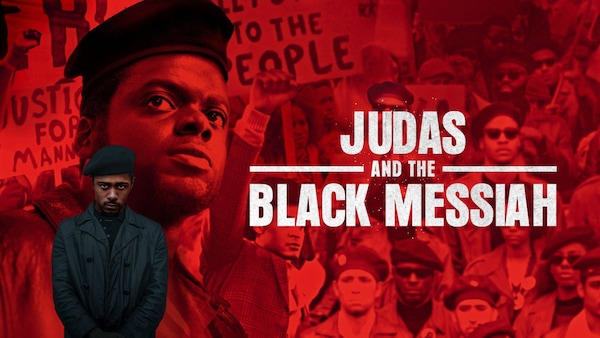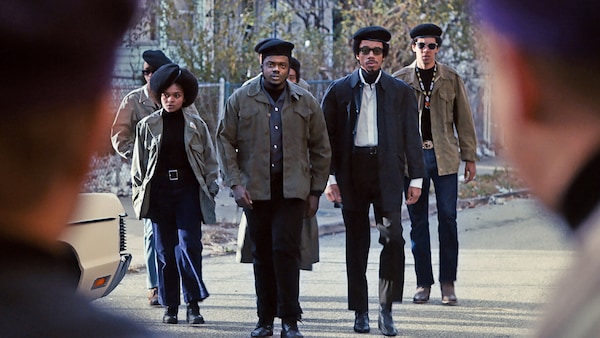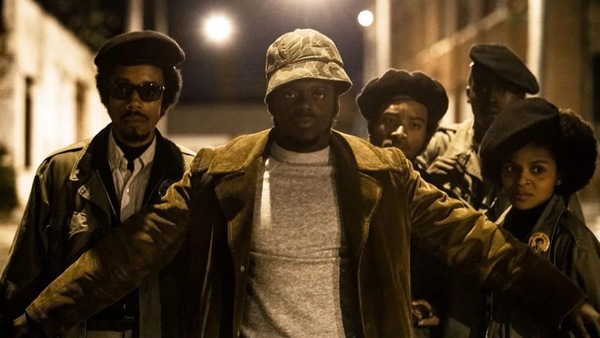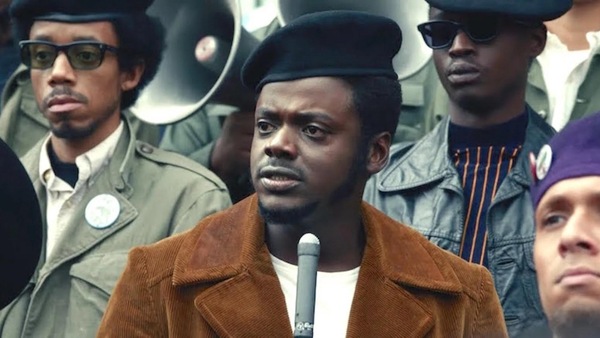Judas and the Black Messiah: A true story about betrayal
Thriller Thursdays: A Black movement, a ruthless FBI chief and an informer; the stakes were being built towards a calamitous confrontation, till the informer starts being swayed by the principles of the movement.

Last Updated: 10.59 PM, Oct 27, 2022
In the annals of history, stories of injustice based on race, caste, gender, and colour, and the consequent uprisings, protests and revolutions are legendary. When you look back, these tales of unparalleled heroism fill us with awe. What is often hidden in these tales is the grittiness, the grime, and the grind that the protagonists face in these struggles. What is also often missed out are the incredible sacrifices and the insidious politics, the hegemony of ego-play and the belittling of persistence, which all put together to bring about denouements which are immediately unfair, unjust and immoral.
The irony is that these are battles in a war which is still continuing and still unfinished. One such story is of Fredrick Allen Hampton (Daniel Kaluuya), head of the Illinois chapter of the Black Panther Party in Chicago in the 1960s. Whilst the Black Panther movement is a movement which has been oft-discussed and whose mission and action are still a matter of controversy (were they saviours or were they killers?), what is not in dispute are the reasons why it sprouted into being in the first place – the police discrimination against blacks, their cold-blooded murders, false charges, and the daily inequity.

What makes this tale both intriguing and tragic is the FBI-Hoover angle and the infiltration of an informant William O'Neal (LaKeith Stanfield) into the local Black Panther movement. William O’Neal grew extremely close to Fredrick Allen Hampton, whilst simultaneously supplying the FBI with regular information about the party’s activities. The twist to the tale, a la Becket, is when he slowly starts getting influenced by the philosophy of the movement and the charisma of Fredrick Allen Hampton. The tension of this internal conflict is juxtaposed with the FBI’s all-out war against the Black Panthers.
Underlying the story of lies and double-crossing are two incredible subtexts – how fiery revolutionary leaders are often gently philosophical in their personal lives and relationships; and how the State can pretty much get away with murder if they set their mind to it. Fredrick Allen Hampton is shown as an incredible orator, breathing and living revolution, who says “No individual creates a rebellion. It’s created out of conditions”. After a particularly powerful speech, a girl Deborah (Dominique Fishback) approaches him and asks him “Do you like poetry?” he says “Che Guevara said ‘Words are beautiful but action is supreme’” to which Deborah stumps him by saying “Wasn’t what you were doing on the stage all about words?” As he looks at her speechlessly, she says “Just so you know, you are a poet”.

The movie is filled with a sense of foreboding right from the beginning and without knowing the end, one can garner the trajectory of the story. Daniel Kaluuya plays Fredrick Allen Hampton with stunning intensity talks about duty and death with equal equanimity and passion. And LaKeith Stanfield as the rat who is swayed by the philosophy of the movement even as he is compromised by the lure of lucre is a moving struggle of contradictions.
The film is a technical triumph - the colour schemata, the music, and the art direction of the film are a riot of colour play, funkiness, and a zenness of action, which all put together seem to emphasize the power of what needs to be done now regardless of how it finally spans out. And finally, the film reemphasises the adage “you can murder a revolutionary, but you can’t murder a revolution” as it eases in and out of action born of belief and belief born of dogma.

In one of the tenderest moments of the film, Fredrick Allen Hampton learns that his wife Deborah is pregnant with his child, even as there is intense scrutiny into the movement and he is continually in danger. He asks her if she ever regrets having his child. Her reply is in the form of a poem which goes into the heart of a simple fact – behind everything, there's finally a person who lives, loves, dreams desires the simplest things in life. I give below an excerpt from the poem –
“Will his eyes have your twinkle?
Will our child be the apple of his eye
Or constantly get the compromise?
The rata-tat-tat of gunfire,
the clink of jail cells, lullabies.
We scream, and we shout
and we live by this anthem,
but is power to the people
really worth that ransom?
‘Cause that’s what a mother does,
she gives the world
the most precious things she loves.
And I love you
and I love our baby too,
and there’s nothing more radical
than seeing that through -
born pure to the blood
with the heart of a Panther.
So, no regrets,
I know my answer.”
Maybe this is but a chapter in the long history of the fight against racism in the USA, but it is an important one, and an important film on that fight, because in remembering and revisiting lies the milestone marker to understand how far things have changed - or not. On present reckoning, there is a distance still to cover.
Trivia
- Director Shaka King has described the initial idea for the film as that of "The Departed" embedded in the world of a Counter Intelligence Program. He thought it was a great way to Trojan-horse a Fred Hampton biography to the world, which was largely unaware of his contribution, as also to disseminate the Panthers’ ideology.
- With both LaKeith Stanfield and Daniel Kaluuya receiving nominations, "Judas and the Black Messiah" was the first film to have multiple black performers nominated at the Oscars for Best Supporting Actors for the same film.
- LaKeith Stanfield is on record in an interview for saying that he had to go through therapy after his portrayal of William O'Neal.
Watch Judas and the Black Messiah here.
(Views expressed in this piece are those of the author, and do not necessarily represent those of OTTplay)
(Written by Sunil Bhandari, a published poet and host of the podcast ‘Uncut Poetry’)
